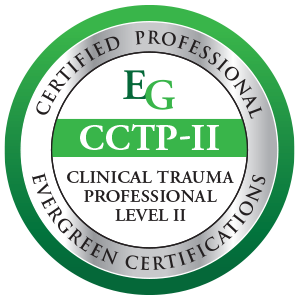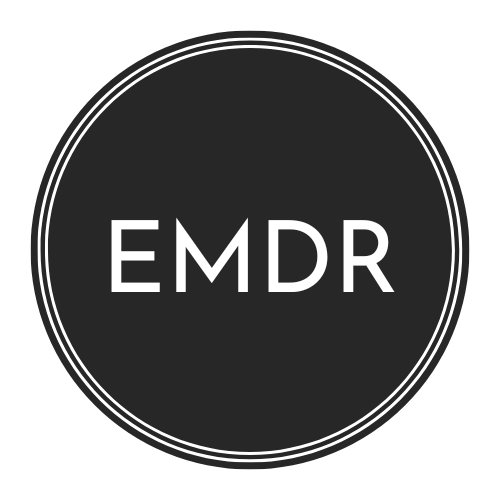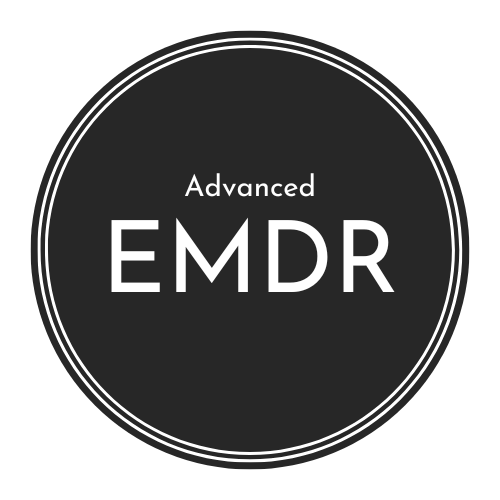
Complex Trauma Therapy in Austin, TX
Specialized Treatment for C-PTSD
Complex Trauma: Why it Requires a Specialized Approach
Living with the weight of repeated trauma can feel like trying to carry a burden that never gets lighter. Unlike trauma from a single traumatic event, complex trauma often develops from ongoing experiences such as childhood abuse, neglect, or abusive relationships. Over time, it can affect every part of life: your sense of self, your relationships, and your ability to feel safe in the world.
Complex trauma therapy offers a path forward. At Neuro Nuance Therapy and EMDR, PLLC, treatment is tailored for survivors of ongoing or developmental trauma, combining evidence-based methods like EMDR, Internal Family Systems, and Ego State Therapy. If you’ve been looking for healing from complex PTSD, this page details a competent and specialized approach available right here in Austin, TX.
What Is Complex Trauma (C-PTSD)?
Complex Post-Traumatic Stress Disorder (C-PTSD) is recognized in the ICD-11 as a condition that develops after prolonged or repeated trauma. While PTSD often stems from a single event, such as an accident, assault, or natural disaster, complex trauma usually emerges from traumatic experiences that unfold over time: childhood abuse, neglect, war, captivity, domestic violence, or toxic relationships.
Many people find themselves searching for information on PTSD vs C-PTSD to understand these differences because they can tell their experience is more complex. The distinction matters, because complex trauma typically involves not only the core PTSD symptoms but also challenges with identity, emotional regulation, and relationship issues. A key distinction that's been observed with brain imaging studies is that PTSD is marked by an ongoing sense of fear, while C-PTSD involves an additional sense of shame, unworthiness, and emotional instability. This can affect many aspects of life, not just triggering situations.

Living with the Impacts of Complex Trauma Can be Debilitating

Symptoms and Impacts of Complex Trauma
How Complex Trauma Differs From PTSD
While PTSD and C-PTSD share certain features, flashbacks, avoidance, hyperarousal, complex trauma often adds deeper relational and self-concept injuries.
PTSD:
Typically arises after a single traumatic event.
Symptoms cluster around intrusive memories, avoidance, and heightened arousal.
Dissociation is typically primary, meaning the part of you who went through the event may be compartmentalized, but your sense of self is still mostly in-tact.
C-PTSD:
Results from childhood trauma or repeated or prolonged trauma.
Includes PTSD symptoms plus disturbances in self-identity, emotional regulation, and relationships.
Dissociation is often secondary or tertiary, meaning there may be several parts of self compartmentalized that hold trauma memories, protective responses, and modes of operating for survival.
Why Does This Difference Matter for Treatment?
Understanding these differences is crucial for customizing effective therapy. Preparation for trauma processing is much more in-depth for complex trauma. That's why having a therapist with advanced training and certification is crucial.
Alex Penrod, MS, LPC, LCDC
Owner and Therapist
Welcome, allow me to introduce myself. I’m a Licensed Professional Counselor (LPC), Licensed Chemical Dependency Counselor (LCDC), and a person in long-term recovery with 10 years of experience working in the behavioral health treatment field.
As a Certified Clinical Trauma Professional II (CCTP-II), my specialties include Eye Movement Desensitization and Reprocessing Therapy (EMDR) blended with Internal Family Systems (IFS) and Ego State Therapy. My approach to complex trauma is based on connecting with you as a person, not as a diagnosis, and helping you to reprocess key experiences that would have affected anyone in your shoes.
In-Person Therapy: I provide in-person EMDR therapy in North and Southwest Austin.
Telehealth: Convenient virtual EMDR sessions help adults throughout Texas heal from home.
I welcome new clients from all walks of life. To learn more about how I can help you find lasting healing, schedule your free 15-minute consultation with me. I’d love to learn more about your goals and answer any questions you may have.
Evidence-Based Approach to Complex Trauma Therapy
Complex trauma treatment follows a phased model that prioritizes safety and pacing while incorporating multiple treatment techniques:
Phase 1: Stabilization
Creating a safe space and supportive environment.
Building coping strategies and skills for emotional regulation and staying in window of tolerance.
Stabilizing the internal system and building capacity for memory exposure.
Establishing a trusting relationship with your therapist.
Phase 2: Processing
EMDR Therapy (Eye Movement Desensitization and Reprocessing): adapted for complex trauma and dissociation.
Internal Family Systems (IFS) and ego state therapy: working with parts of the self that protect against threats and carry traumatic memories.
Somatic strategies and mindfulness: helping the body release stored stress.
Cognitive Behavioral Therapy (CBT), Cognitive Processing Therapy (CPT), Narrative Exposure Therapy: evidence-based treatment methods that are oven woven into trauma recovery.
Phase 3: Integration
Strengthening identity and self-concept.
Repairing relationships and addressing relational trauma.
Supporting personal growth and life transitions.
Medication management, group therapy, and other supportive services may also play a role depending on individual needs.
What to Expect in Complex Trauma Therapy
Every treatment plan is customized to your specific needs. Sessions often begin with stabilization and the development of coping skills before moving into deeper processing. Because complex trauma is layered, therapy is usually longer-term than treatment for single-event PTSD.
You can expect:
A safe, supportive environment where you are in control.
Collaborative treatment planning, you are the expert on you, I am your knowledgeable and skilled guide.
Integration of multiple therapy types, from EMDR to highly specialized ego state strategies.
Assistance and support with building holistic trauma recovery strategies outside of therapy.
Flexible scheduling options, including both in-person counseling in Austin and telehealth across Texas.

Who Can Benefit
Treatment Outcomes of Complex Trauma Therapy
With time and consistency, many clients experience:
Improved emotional regulation and anger management.
Healthier relationships and better communication skills.
Reduced trauma symptoms, including fewer flashbacks, less hypervigilance, with symptoms often no longer meeting criteria for C-PTSD.
A stronger sense of self and increased confidence.
Renewed hope for the future and the ability to move forward.
Why Choose Neuro Nuance Therapy & EMDR, PLLC?
I founded Neuro Nuance Therapy and EMDR, PLLC to create a safe and specialized space for survivors of trauma. Over the years, I’ve dedicated my practice to helping people move beyond survival patterns and into recovery.
I bring advanced training in EMDR Therapy, Internal Family Systems, and ego state therapy, and I tailor each treatment approach to the unique needs of the individual. My background also includes extensive experience supporting people with dissociation, substance use, and complex trauma-related struggles.
I understand how difficult it can feel to start therapy, especially after painful experiences with trust and safety. My role is to guide the process at your pace, using evidence-based treatment while respecting your story and your timing.

Training and Certification
Frequently Asked Questions
-
C-PTSD includes the symptoms of PTSD plus challenges with self-identity, relationships, and emotional regulation.
-
Because complex trauma is cumulative, therapy often requires a longer-term commitment than single-event PTSD treatment. The pace is adjusted to meet each client’s stability and readiness. A minimum of 12-16 sessions has been shown to have significant effects in research studies.
-
Yes. EMDR can be highly effective for C-PTSD when adapted for pacing, dissociation, and relational safety.
-
Yes, Virtual EMDR sessions can be successfully conducted online through secure video. The process can be adapted for teletherapy, utilizing visual cues, auditory tones, or tapping for bilateral stimulation. This flexibility allows you to receive EMDR treatment from the comfort and safety of your home.
-
Yes, I have an office for in-person sessions in North Austin near Mopac and 183 and in Southwest Austin on Bee Caves Road if you prefer to meet face to face. My availability is more limited for this option though.
-
I have several ways you can use your insurance.
I'm in network with Aetna and offer a convenient hassle free way to handle your claims through a company called Headway.
For all other insurance carriers, if you've met your deductible for the year you could get automatic reimbursement and only pay for a portion of your sessions by using a company called Thrizer to process out of network claims. If you haven't met your deductible, we can submit superbills to Thrizer to apply toward meeting it.
I can assist you with your options in a free 15-minute consultation or visit my services page for links to explore these options for yourself.
-
I charge $150 for 60-minute sessions and $225 for 90-minutes sessions.
-
No, I specialize in individual therapy. However, I can offer referrals and I often work in collaboration with family and couple’s therapist.
-
While therapy is the first-line treatment for trauma, medication management may support recovery for some clients. I offer referrals and coordinate with prescribers to assist you if needed.
-
See my frequently asked questions page for more questions and answers, my page on the cost of EMDR, or schedule a free 15-minute consultation with me. I'd be happy to help!
3 Step Plan
-

Book Your Free 15-Minute Consultation
Follow the link below to use my calendar and choose a time that’s right for you.
-

Together we assess your needs and determine a plan of action
A consultation allows you to explore if therapy with me is right for you with no commitment or obligation.
-

Begin healing your past, reclaiming your present, and building your future
After consultation, beginning therapy is as easy as scheduling your first session.




